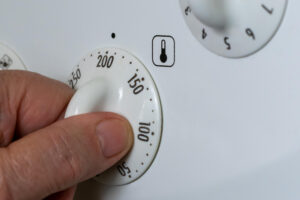Problems paying your bill? There’s always budget payments
Last updated on March 10th, 2024 at 03:26 pm
Its happened to everyone. A few months out of the year, you either slip up and use too much energy, or need to use more energy out of necessity. Winter months in a cold climate, or the summer months in warmer climates are the classic examples.
Budget payments offered by the utility companies give you the flexibility of paying lower energy bills during these months, but you pay the same amount every month for a fixed term – usually 6-10 months or billing cycles.
Budget payments do no save you money. And they do not save you on energy. The are a way to “fix” your energy price in the short term. In other words, your payment doesn’t change unless your usage goes way up or way down. But that won’t happen if you use smart conservation.
No matter how hard you try, sometimes your energy usage will skyrocket. Depending on the home you’re in, it may skyrocket by quite a bit. Budget payments offset this by averaging out your costs over a set time period and calculating a payment based on your past usage and expected usage. Your payment, remember, may change if usage drastically does. This means potentially you pay the same amount in July for heat that you do in February. The argument, though, is if you know your payment, you can plan a nudget more effectively.
Thus, the term budget payments.
There are a few caveats. First, you probably need a live reading, not an estimate, so the energy company can set and adjust the payment. Next, you also most likely need to be up to date with your payments. Most energy companies (surprisingly) won’t let you on a payment schedule unless your bills are paid.
The first one makes sense. In order to calculate your usage and get up to date costs, the energy company needs a current charge. The only way to do this is through a current reading. If your meter is outside and is read by the energy company directly, this isn’t a problem. If not, you may have to phone in a reading, do one online, or schedule an appointment.
The next one doesn’t make a lot of sense to me. If you receive a high energy bill, that’s the time you want to go on budget payments. But when you call the utility company, they tell you that they can put you on a fixed payment after you pay the current charges. That isn’t logical. The reason you are requesting budget payments is because you have a high energy bill that you can’t afford to pay all at once. My local energy company does this, and it drives me absolutely bonkers.
So how can you avoid this?
- Adjust your budget. If you aren’t on a fixed payment, adjust your budget on a seasonal basis, leaving more for energy when (historically) you’ve needed it the most. For most, winter and summer are the crunch times for different energy reasons.
- Conservation. Energy conservation at home is important. Don’t lose sight of it. The less energy you use, the less you pay for.
- Avoid spikes in energy use. Understandably, most spikes can not be controlled. When the temperature outside drops, your home will use more energy to heat it comfortably. Resist the urge to temporarily raise the temperature even a few degrees.
Once you are on a budget payment, this is not a free pass to use more energy. You always, always pay for what you use. The energy company still monitors your usage, and may raise your payment to compensate for the change. Or, it may just bill you at the end of the period to “catch up” and make your current. So, keep enacting smart energy conservation practices and look for ways to reduce your energy usage. It will pay off, even if you don’t see it in your fixed payment bill.


